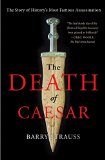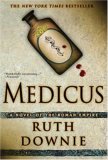Summary | Excerpt | Reading Guide | Reviews | Beyond the book | Read-Alikes | Genres & Themes | Author Bio

The New York Times bestselling and legendary author of Helen of Troy and Elizabeth I now turns her gaze on Emperor Nero, one of the most notorious and misunderstood figures in history.
Built on the backs of those who fell before it, Julius Caesar's imperial dynasty is only as strong as the next person who seeks to control it. In the Roman Empire no one is safe from the sting of betrayal: man, woman—or child.
As a boy, Nero's royal heritage becomes a threat to his very life, first when the mad emperor Caligula tries to drown him, then when his great aunt attempts to secure her own son's inheritance. Faced with shocking acts of treachery, young Nero is dealt a harsh lesson: it is better to be cruel than dead.
While Nero idealizes the artistic and athletic principles of Greece, his very survival rests on his ability to navigate the sea of vipers that is Rome. The most lethal of all is his own mother, a cold-blooded woman whose singular goal is to control the empire. With cunning and poison, the obstacles fall one by one. But as Agrippina's machinations earn her son a title he is both tempted and terrified to assume, Nero's determination to escape her thrall will shape him into the man he was fated to become—an Emperor who became legendary.
With impeccable research and captivating prose, The Confessions of Young Nero is the story of a boy's ruthless ascension to the throne. Detailing his journey from innocent youth to infamous ruler, it is an epic tale of the lengths to which man will go in the ultimate quest for power and survival.
George, who has delivered similar treatment of other historical figures (Henry VIII, Cleopatra), doesn't exactly redeem her subject—Nero still commits many of the horrible acts he's rumored to have perpetrated— but she does put a human face on him. Eventually he comes across as the ultimate unreliable narrator—someone who is guilty of horrific deeds but who can completely justify his actions, and through his narration, elicits his readers' sympathy...continued
Full Review
 (803 words)
(803 words)
(Reviewed by Kim Kovacs).
The appreciation of music seemed to be one of Emperor Nero's favorite pastimes. He not only organized musical competitions, but played several instruments himself.
 Brass instruments such as the tuba (a long, straight trumpet-like device) and the cornu (the precursor of the French horn) were mostly used by the military of the day while high society usually preferred stringed instruments. The lute was the simplest of these, generally having only three strings and considered a folk instrument. The lyre was more widely used; it was essentially an early harp made of wood or tortoiseshell that was cradled in one arm and plucked with the other hand. The pre-eminent instrument (and the one favored by Emperor Nero) was the cithara (or kithara)....
Brass instruments such as the tuba (a long, straight trumpet-like device) and the cornu (the precursor of the French horn) were mostly used by the military of the day while high society usually preferred stringed instruments. The lute was the simplest of these, generally having only three strings and considered a folk instrument. The lyre was more widely used; it was essentially an early harp made of wood or tortoiseshell that was cradled in one arm and plucked with the other hand. The pre-eminent instrument (and the one favored by Emperor Nero) was the cithara (or kithara)....

If you liked The Confessions of Young Nero, try these:

by Barry Strauss
Published 2016
The exciting, dramatic story of one of history's most famous events—the death of Julius Caesar—now placed in full context of Rome's civil wars by eminent historian Barry Strauss.

by Ruth Downie
Published 2008
Murder in Roman-occupied Britain sets the scene for the most original and compelling novel of the ancient world since I, Claudius.